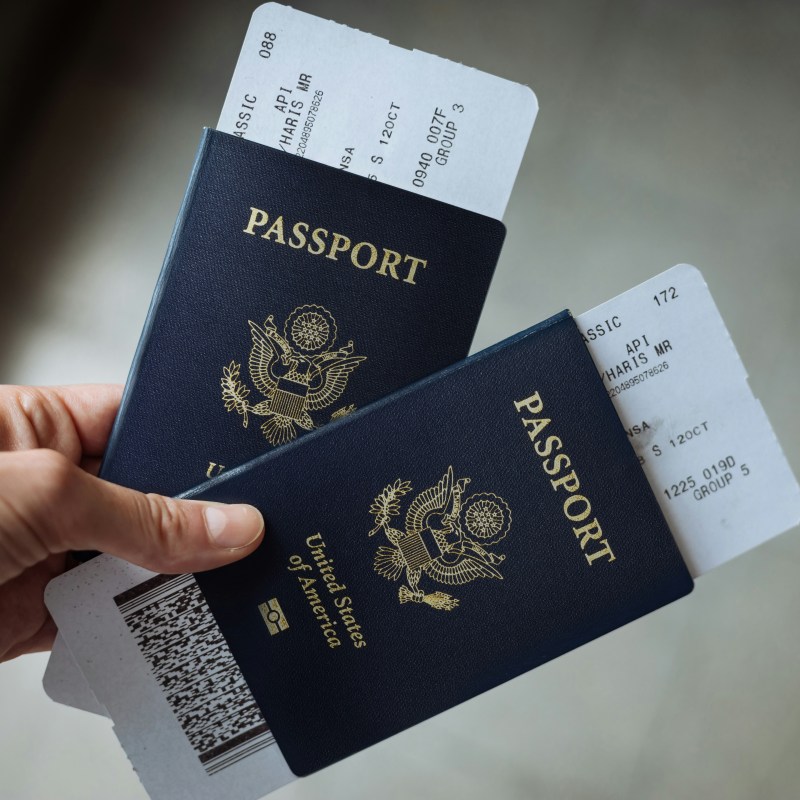
As an American living in Europe, I’ve fielded some interesting questions about what it’s like to be from the United States.
Videos by TravelAwaits
The number one question I get is about high school. Are there really football games every Friday? Do we really use the lockers shown in movies?
Cute, right? Well, things tend to get political after questions about high school dry up.
Recently, I found myself talking about paying taxes. As a resident of Spain, I pay taxes to Spain’s tax authority – but as a US citizen, I still report my earnings to the federal government.
That dropped a few jaws.
Why would the federal government expect me to report and pay taxes on earnings made abroad?
I’m sure there are many reasons. But this particular conversation turned toward one unique element of being an American abroad: how active the US Department of State is when it comes to its citizens.
Compared to other countries, the DOS isn’t afraid to bail out Americans with an iron fist when needed—and possibly even when undeserved.
But let’s back up for a second. While the US Department of State might bail you out, it’s much more invested in preventing disaster. If you’ve never explored the DOS’s official advice on how to stay safe in other countries, then consider this your sign.
Here’s what you need to know.
Safety tips: the official guide
The US Department of state offers a pretty minimal guide on safety. It recommends that travelers look for country advisories and then enroll in the Smart Traveler Enrollment Program (more on this below).
I’d start off with the Travel Advisory page. It offers a detailed risk assessment for each country, ranking them on levels from 1-4.
Level 4 is the most dangerous category, covering countries the Department of State wants you to avoid. Right now, Level 4 countries include Myanmar, Afghanistan, Haiti, Iraq, Iran, Belarus, and others.
The Travel Advisory page also covers general worldwide advice. As of June 2024, the Department of State advises Americans to stay vigilant at LGBTQI+ events, as there’s been an uptick in threats and violence during larger gatherings.
The Smart Traveler Enrollment Program (STEP)
The Department of State offers travelers the chance to enroll in STEP. STEP is a program in which citizens upload their travel details, which are then sent to all the relevant US embassies and consulates on their itinerary.
That way, if you run into trouble, you can easily head to an embassy or consulate that will have all the necessary information to help you. Once you’ve registered, you’ll also receive any relevant news updates and alerts from the selected embassies and consulates.
In other words, it opens up a line of communication between you and the nearest US embassy. If you’re nervous about heading abroad, this is one of the most thorough and helpful ways to get prepared.
The Smart Traveler App
If enrolling in STEP is a little too involved for you, then consider downloading the Smart Traveler App. This was released by the US Department of State to simplify country searches for citizens.
In other words, you can access all the Department of State’s latest travel advisories, alerts, and warnings from the app.
It also gives you access to enroll in STEP, if that’s another priority. However, even if you don’t want to log all of your itinerary to be officially part of STEP, it’s still handy to have access to the latest updates and information. That includes addresses for US embassies and consulates.
The unofficial guide
I’ve handed over all the most helpful information that the Department of State has to offer. But I’ve also got a few tips based on my experience living, traveling, and studying in Latin America, Europe, Australia, South Asia, East Asia, and Southeast Asia.
My first piece of advice to American tourists is to be observant. Americans are passionate; sometimes, we can get a little rowdy and excited. Try to take a look around now and then; it’s always a good idea to notice how locals act and then adjust accordingly.
You don’t need to be a monk or a poser; but try to enter another country how you would another person’s home—with respect and gratitude.
My second piece of advice is to get to know your destination. I’m not just talking about tourist zones and activities. I’m specifically talking about politics. The US has a long and sordid relationship with international affairs; humility goes a long way in places where people might not think of Americans fondly.
Specifically, I’m thinking about my visits to Cuba and Vietnam. You don’t need to bring up politics (I’d advise against it), but the more you know, the better you might understand how others see you. This can help you avoid tension along with staying safe.
